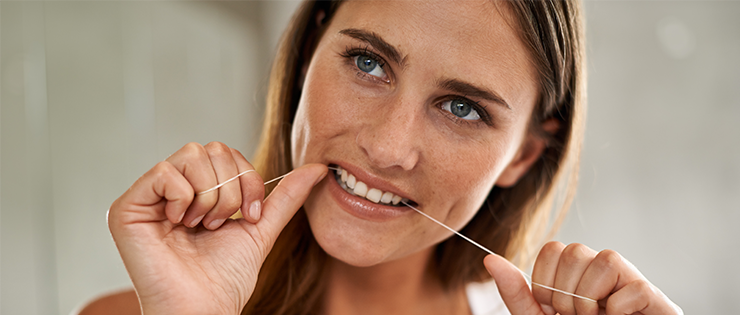
"Please be gentle, my gums bleed easily". When a patient comes to see me for a scale and clean, and this is one the first things they say to me, it tells me so much more than they have "sensitive gums". Gums that bleed during cleaning are incredibly common, with well over 90% of the population experiencing some degree of gingivitis. Just because it's very common doesn't mean it's healthy.
So what is gingivitis?
Gums that bleed easily are just one of the signs of gingivitis, and probably the most obvious to Mr and Ms Average Australian. Gingivitis is a superficial inflammation of the gums caused by the bacteria that form the plaque living in everyone's mouth. Most people make an effort to clean the bacteria away every day by brushing and flossing, but if plaque is left behind on the teeth it produces acid and toxins which irritate the gums and cause an inflammatory reaction. At it's core, inflammation is an increase in blood flow which results in the other signs of gingivitis:
- Bleeding.
- Swelling.
- Redness.
Everyone would have experienced inflammation elsewhere on their body, from an injury or something as small as a mozzie bite. Redness, swelling... but why do gums bleed so easily compared to the rest of the body? Gum tissue is similar to skin, but not quite the same. Try to think of gums as being more like a sponge than skin. Healthy gums have a normal amount of blood flow, and will not bleed unless injured. They should appear coral pink and fit tightly next to the teeth. Inflamed gums have far more blood inside them, and will leak like a sponge on even the most mild of contact. The more inflammation, the less stimulation it takes for them to bleed.
So unlike the rest of your body, where bleeding immediately triggers the idea that the area needs to be protected and not touched, bleeding gums need MORE attention. Gentle but thorough cleaning, so the irritating plaque can be removed and the inflammation can go down. It usually takes up to a week of good home plaque removal for gingivitis to resolve, but once you're back to healthy gums the bleeding should stop.
Does that mean it's normal for gums to bleed during a professional scale and clean? To some degree yes, because if there's absolutely no plaque or calculus present, there's no need for a clean in the first place! Unfortunately everyone's mouth eventually builds up plaque and calculus, which can be professionally removed by your dentist, dental therapist, dental hygienist, or oral health therapist on a schedule tailored to your individual needs. This can be anywhere between 3-monthly and 18-monthly, and primarily depends on how well you're keeping your teeth clean at home.
So next time you notice your gums bleeding during a scale and clean, it's because there was irritating plaque hanging around that needed to be removed. Your gums are leaking as a result of inflammation, not injury. The cleaner you keep your teeth at home, the less your gums will bleed during your regular professional cleaning.